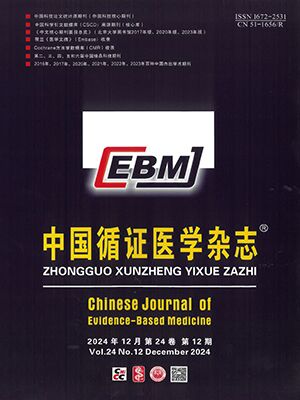Objective We searched the best available evidence to provide a basis for the medical or palliative surgical treatment of a patient suffering from terminal colon cancer, complicated by intestinal obstruction (malignant intestinal obstruction), so as to improve the patient’s quality of life and alleviate her clinical symptoms.
Methods We formed the clinical question according to the PICO principle. We searched for systematic reviews and randomized controlled trials in The Cochrane Library (Issue 1, 2007), MEDLINE (PubMed, January 1950 to March 2007) and ACP Journal Club (January 1991 to March 2007), and evaluated the evidence retrieveds.?
Results We found that both scopolamine and octreotide could alleviate nausea, vomiting and abdominal pain, but that octreotide was superior to scopolamine in reducing the secretion of gastric acid. Metoclopramide was effective in relieving fatigue, vomiting and intestinal obstruction associated with advanced cancer. A nasogastric tube may be used to drain the secretions before the administration of medical treatment, but long-term use tubes may make patients intolerable and induced side effects, such as necrosis of nasal mucous membrane and infection. At present, empirical palliative surgery was used for the management of malignant intestinal obstruction. This varied in different regions, and so the patients’ clinical condition should be taken into consideration. Being informed of the advantages and disadvantages of different treatment regimens, the patient and her family made the final decision.
Conclusion The current evidence suggests that medical treatment can improve quality of life and alleviate clinical symptoms for a patient suffering from terminal colon cancer complicated with intestinal obstruction. However, the effect of palliative surgical treatment remains to be proved, and the decision about the appropriate treatment needs to consider the patients’ condition and the doctors’ clinical experiences.
Citation: WANG Han,YUE Jirong,HOU YanBin,DENG JueLin. Evidence-base Treatment for a Patient with Malignant Intestinal Obstruction. Chinese Journal of Evidence-Based Medicine, 2008, 08(1): 55-57. doi: 10.7507/1672-2531.20080013 Copy
Copyright © the editorial department of Chinese Journal of Evidence-Based Medicine of West China Medical Publisher. All rights reserved




